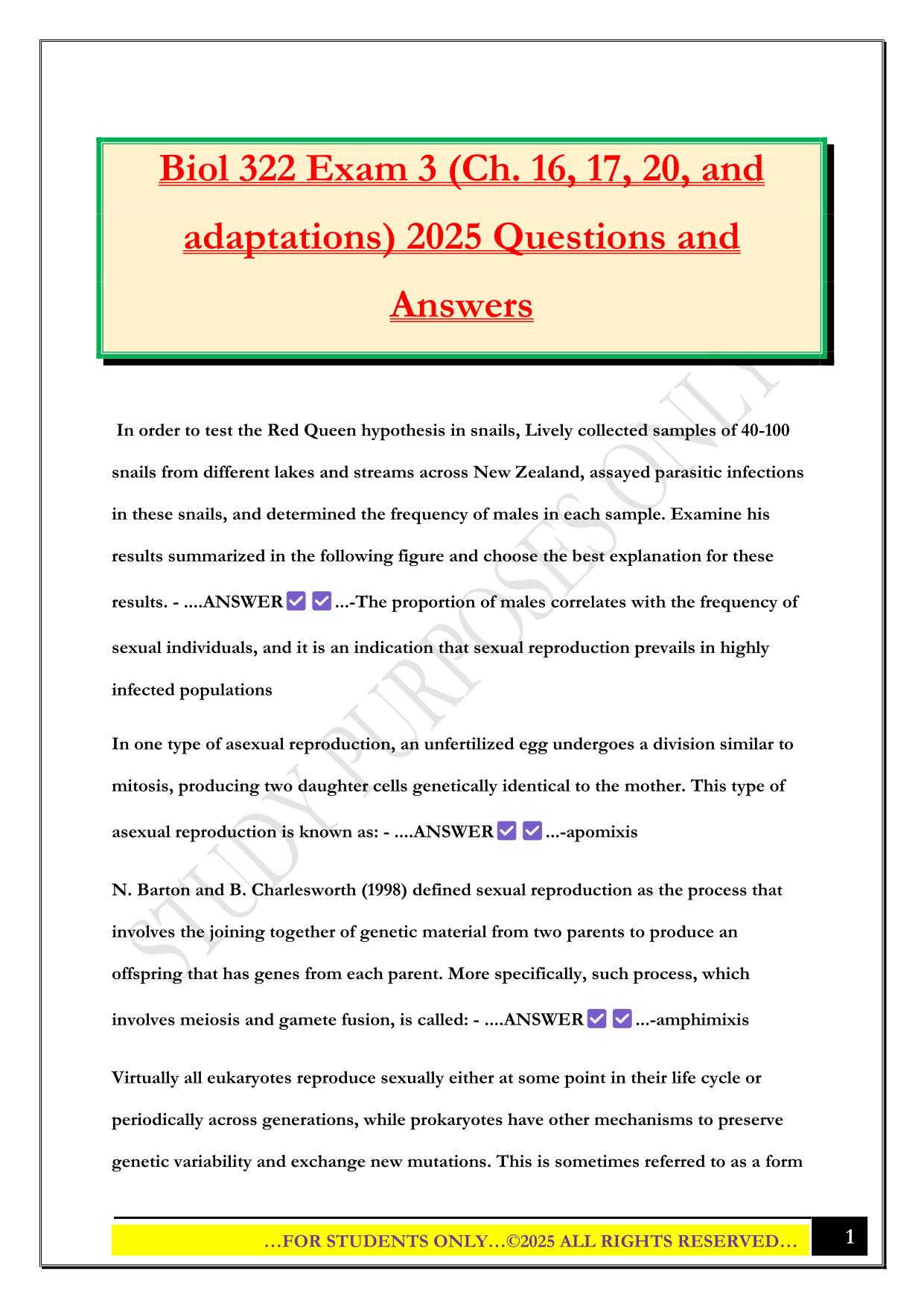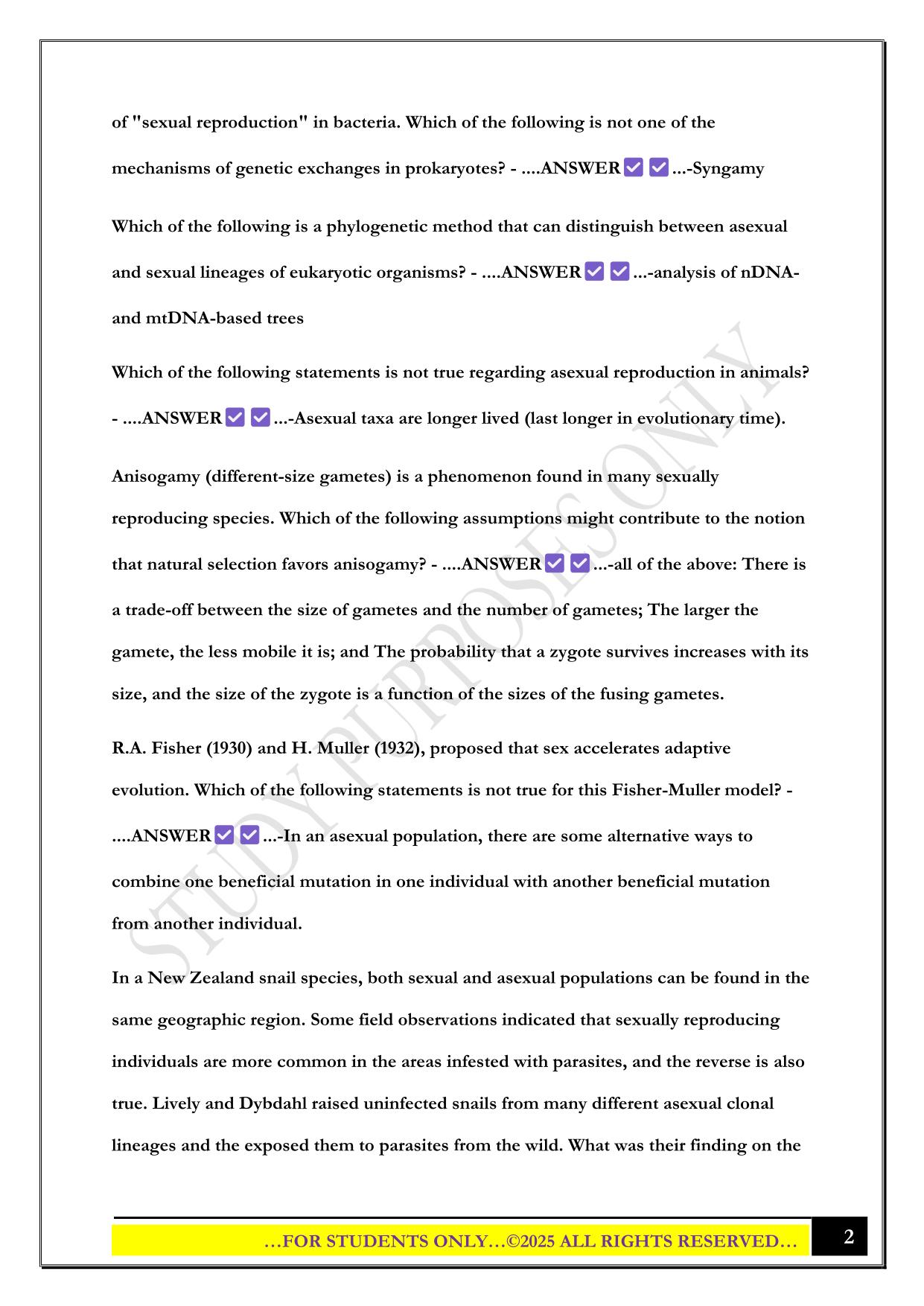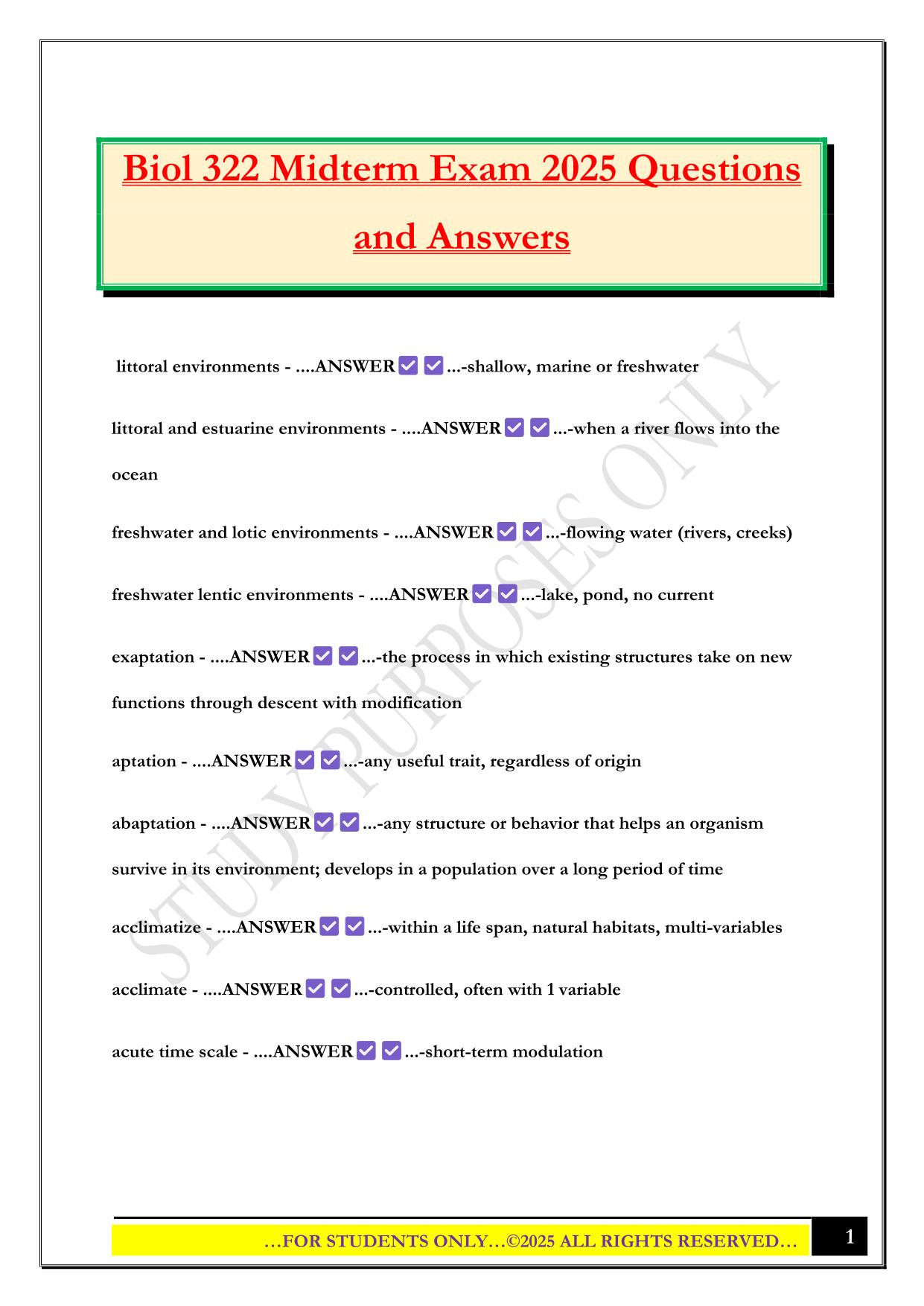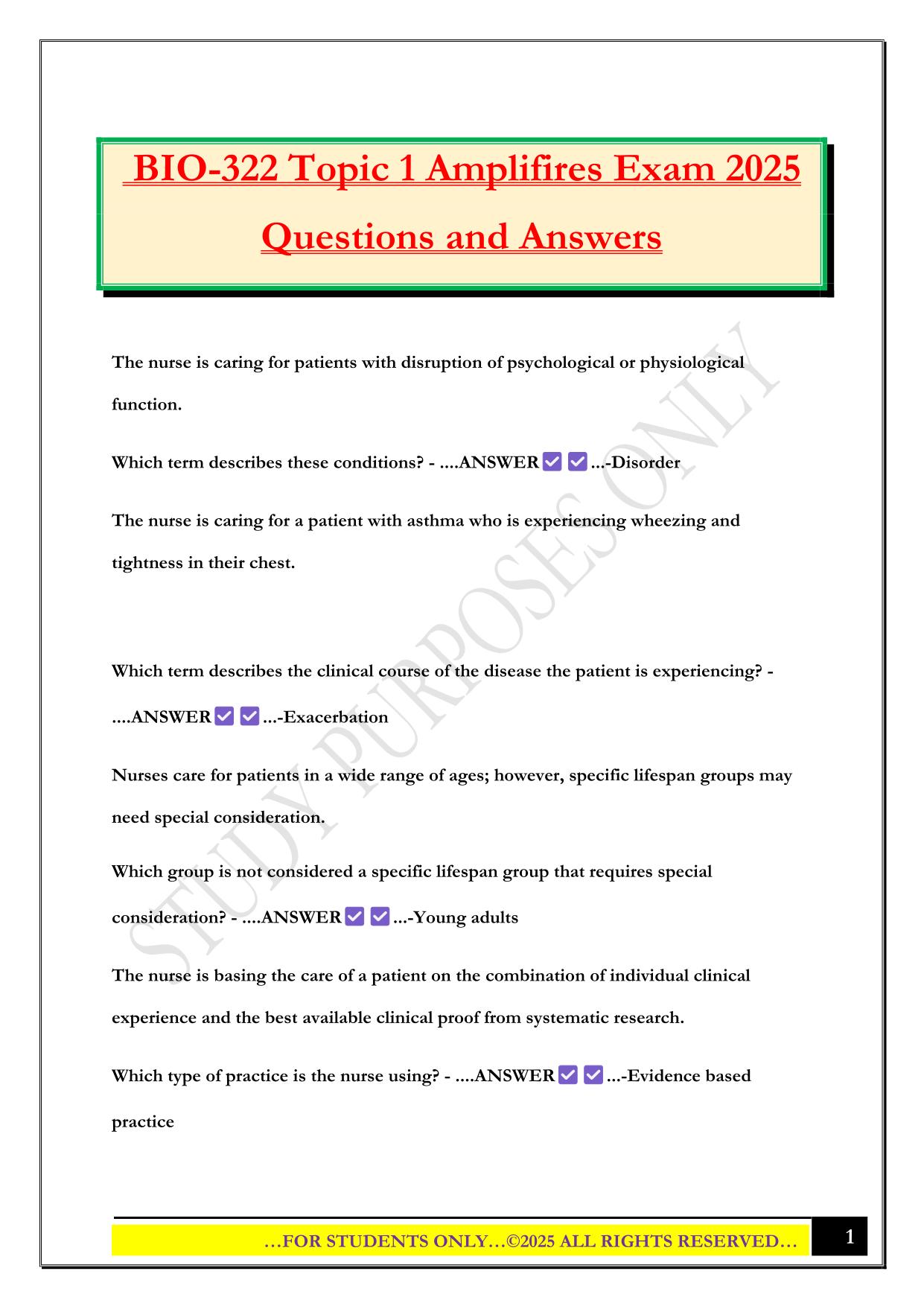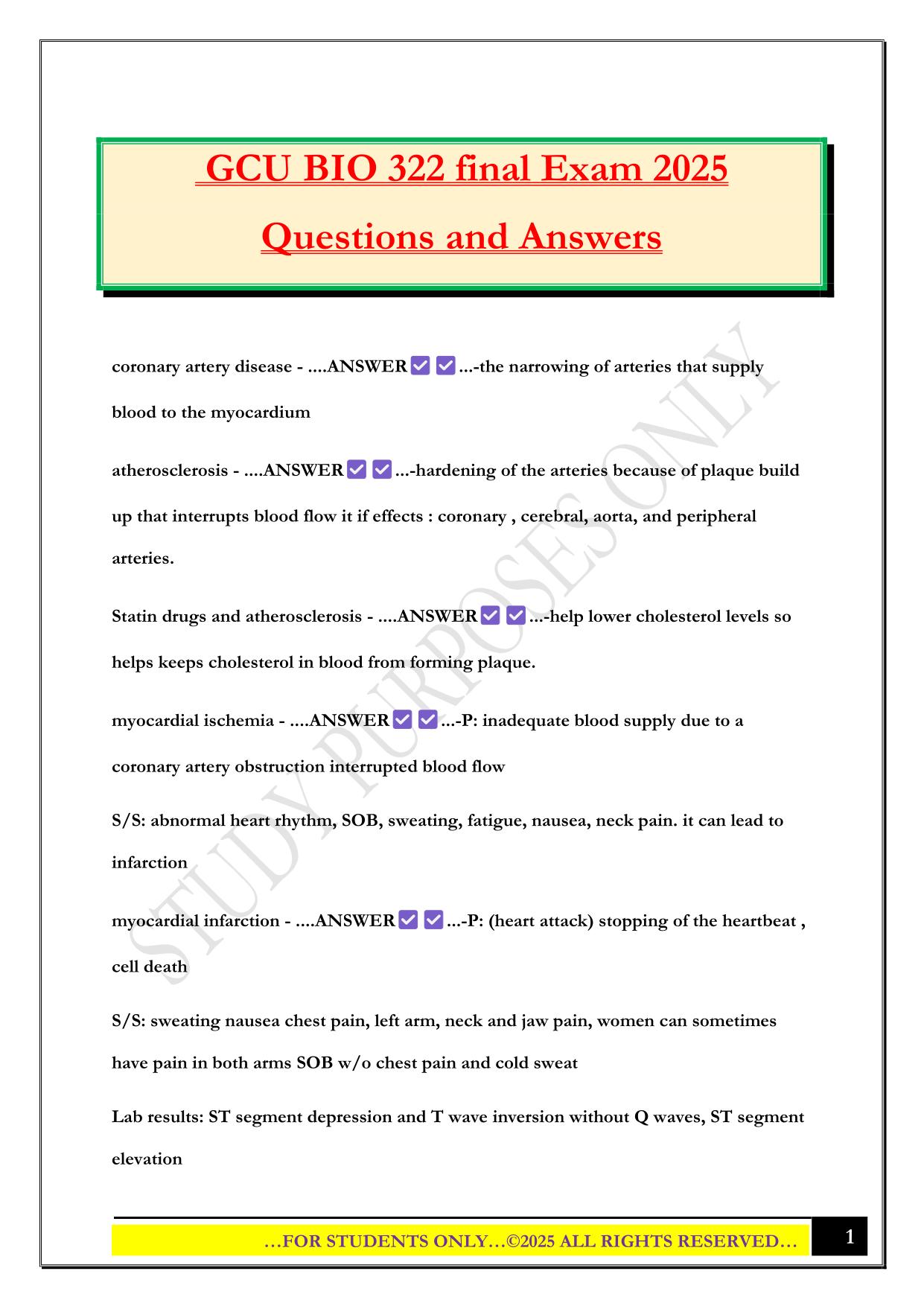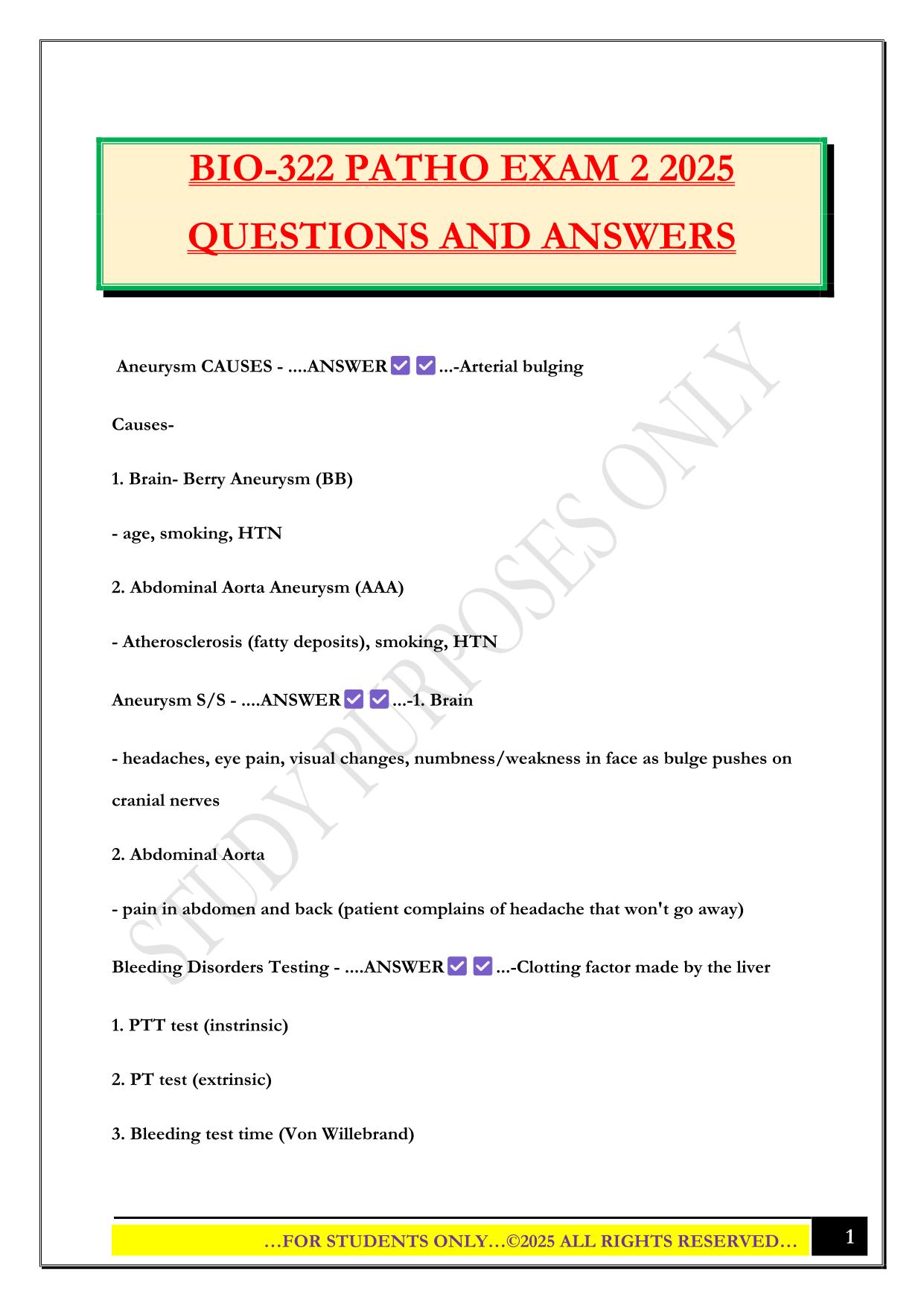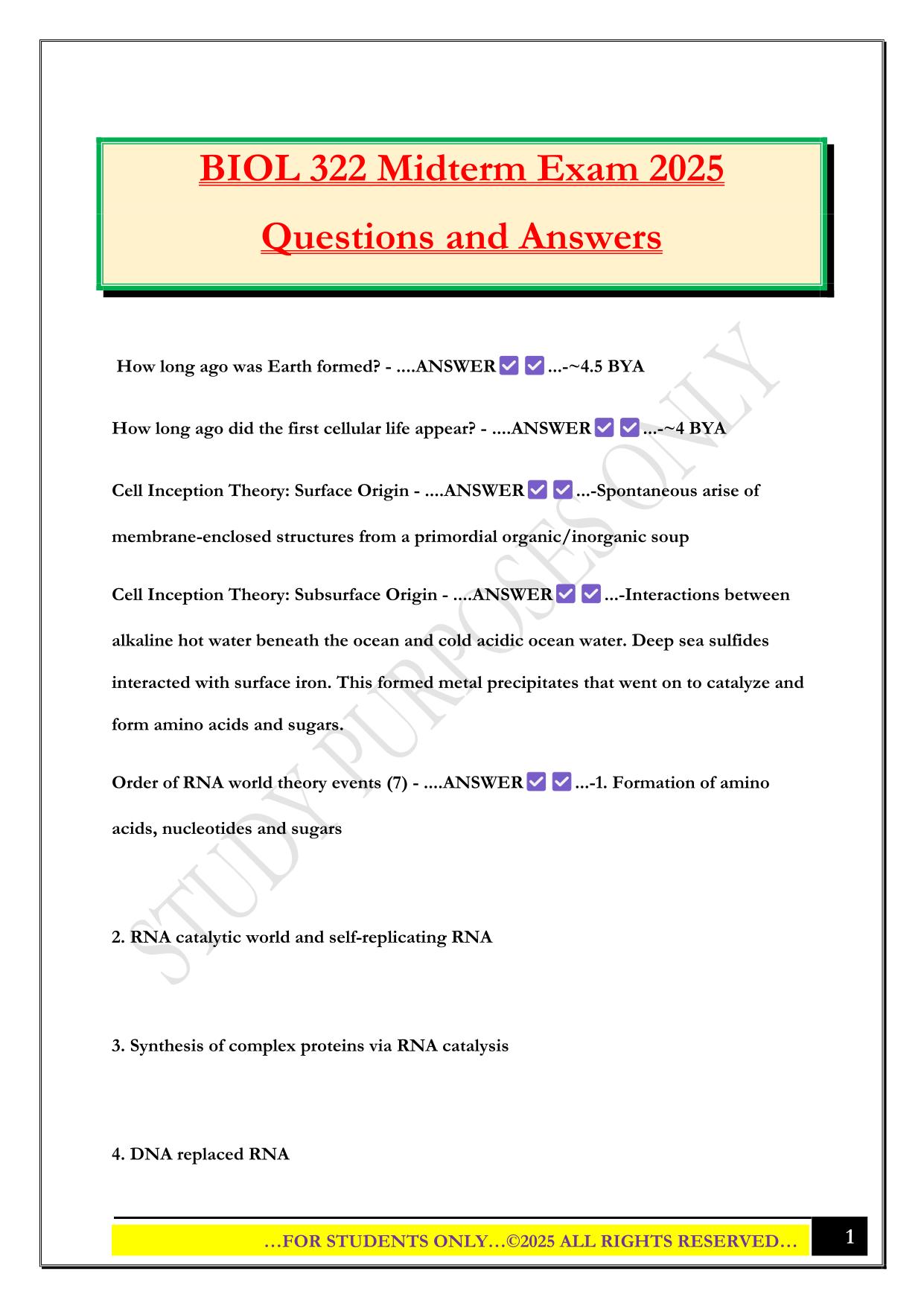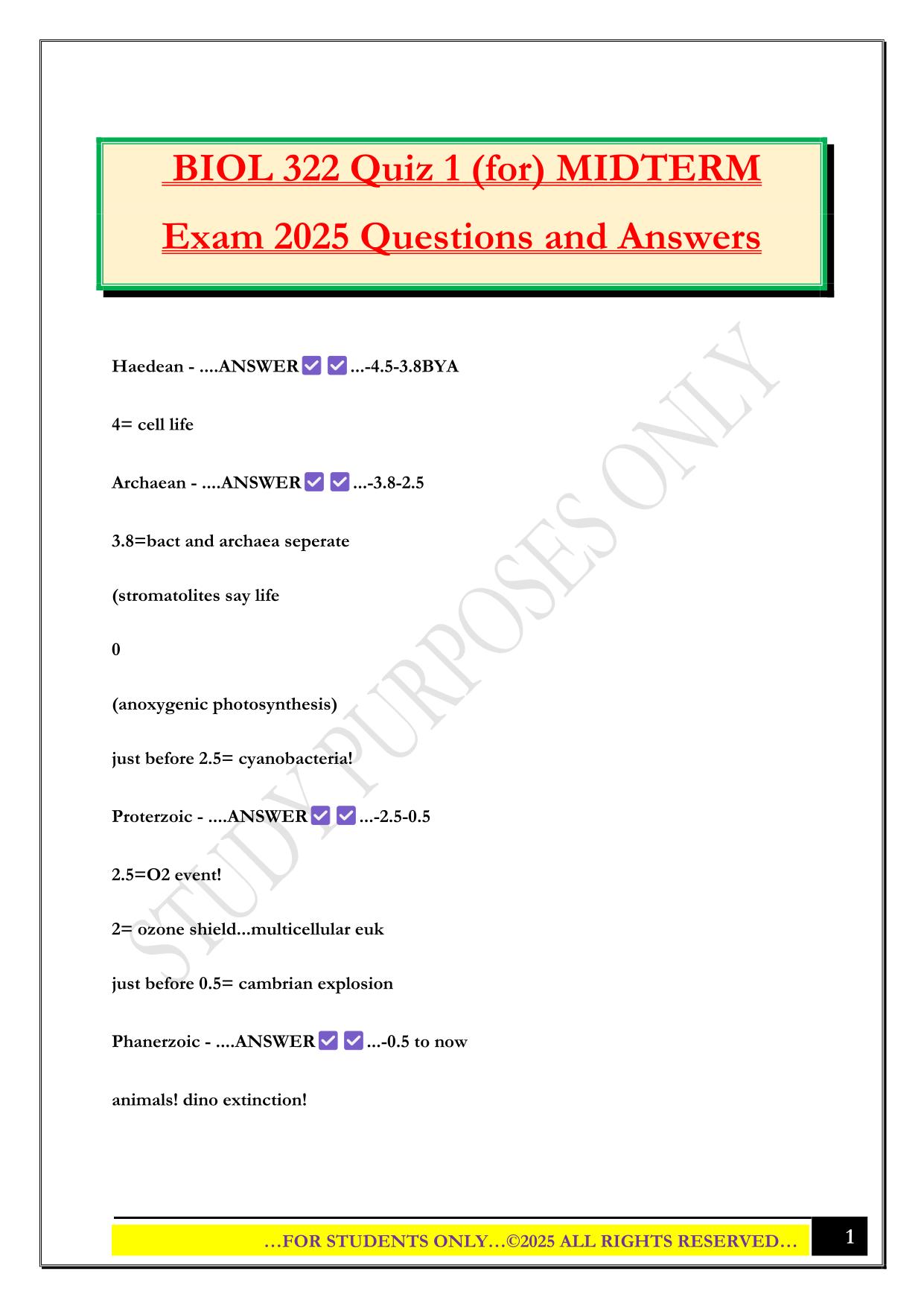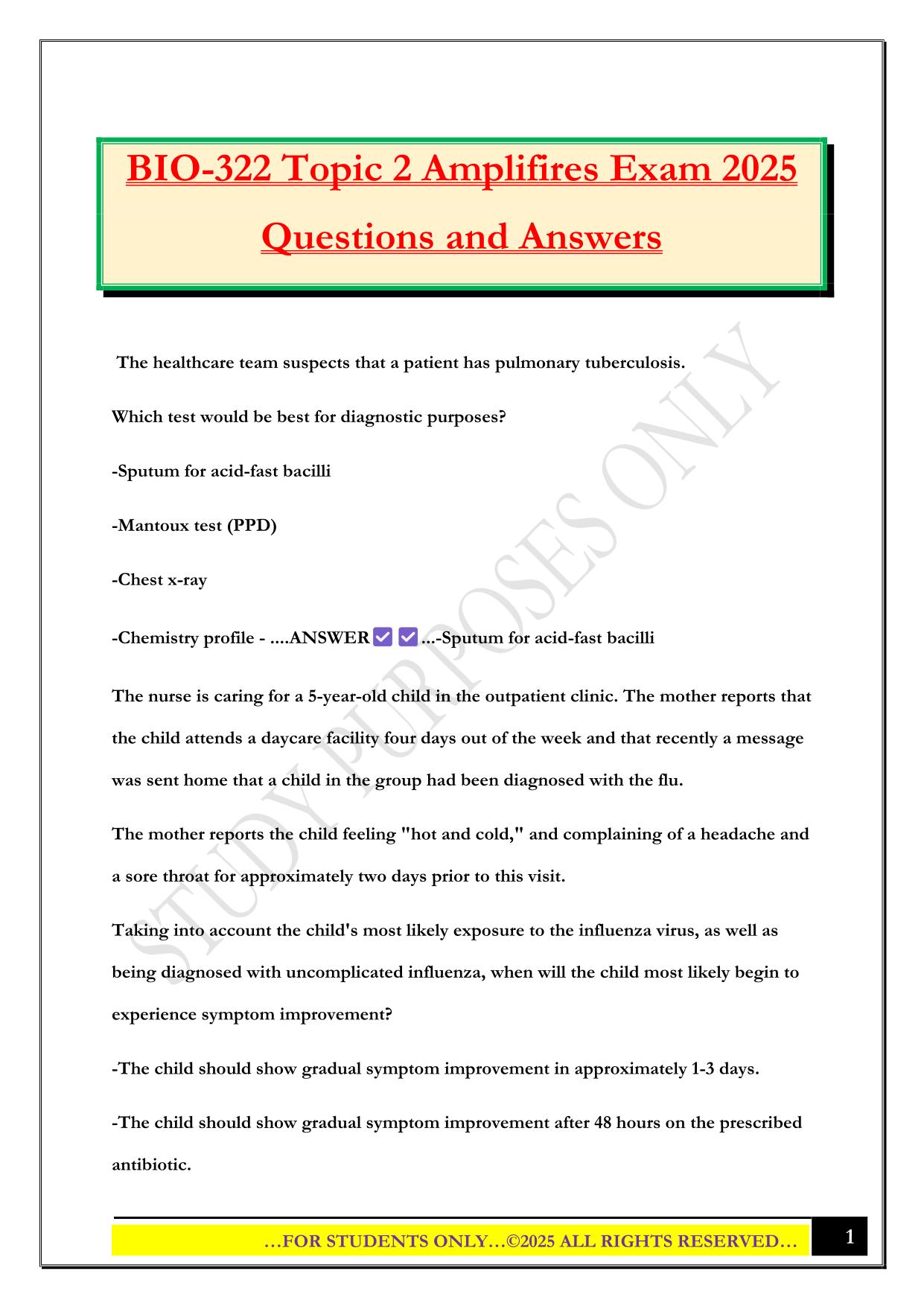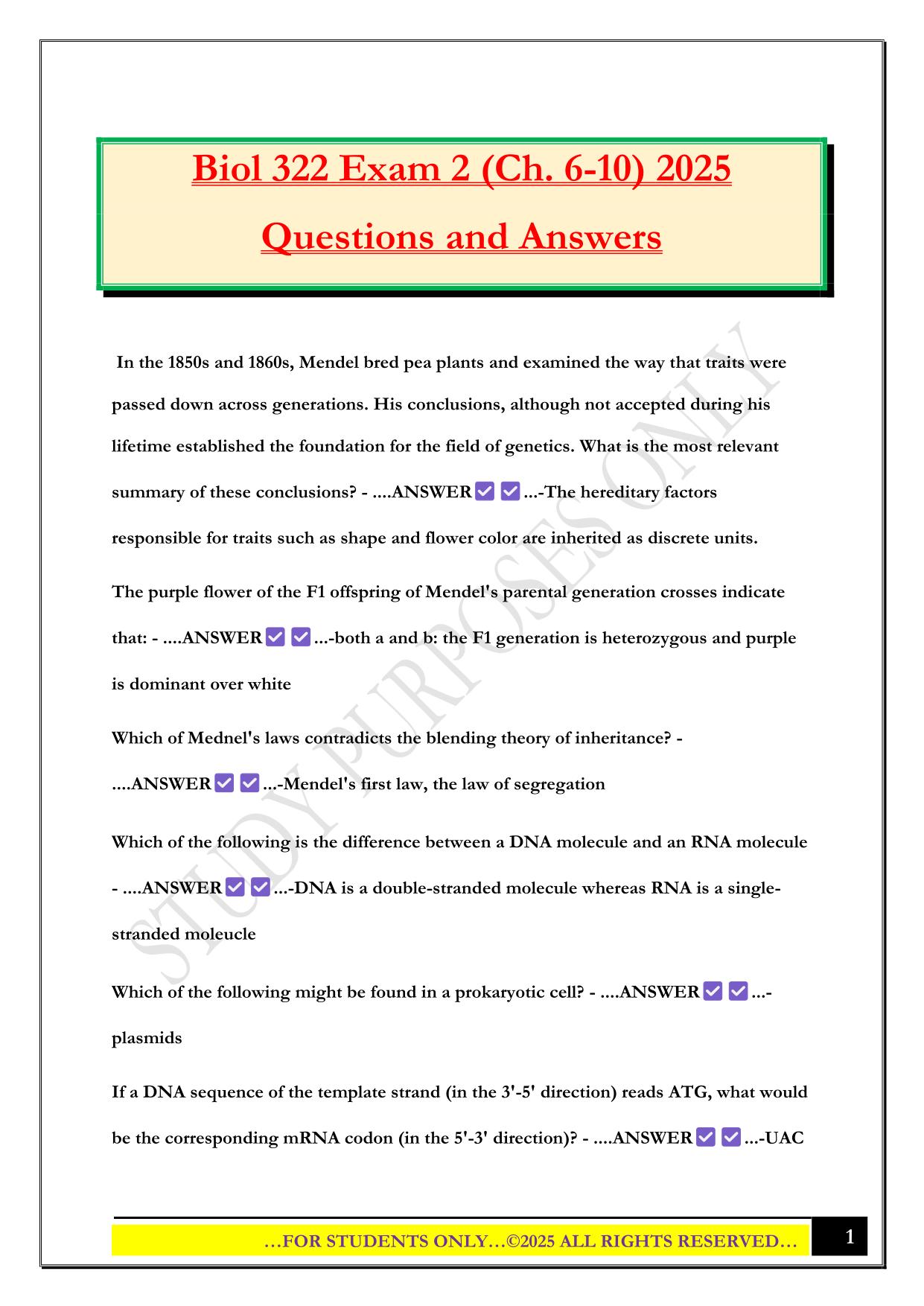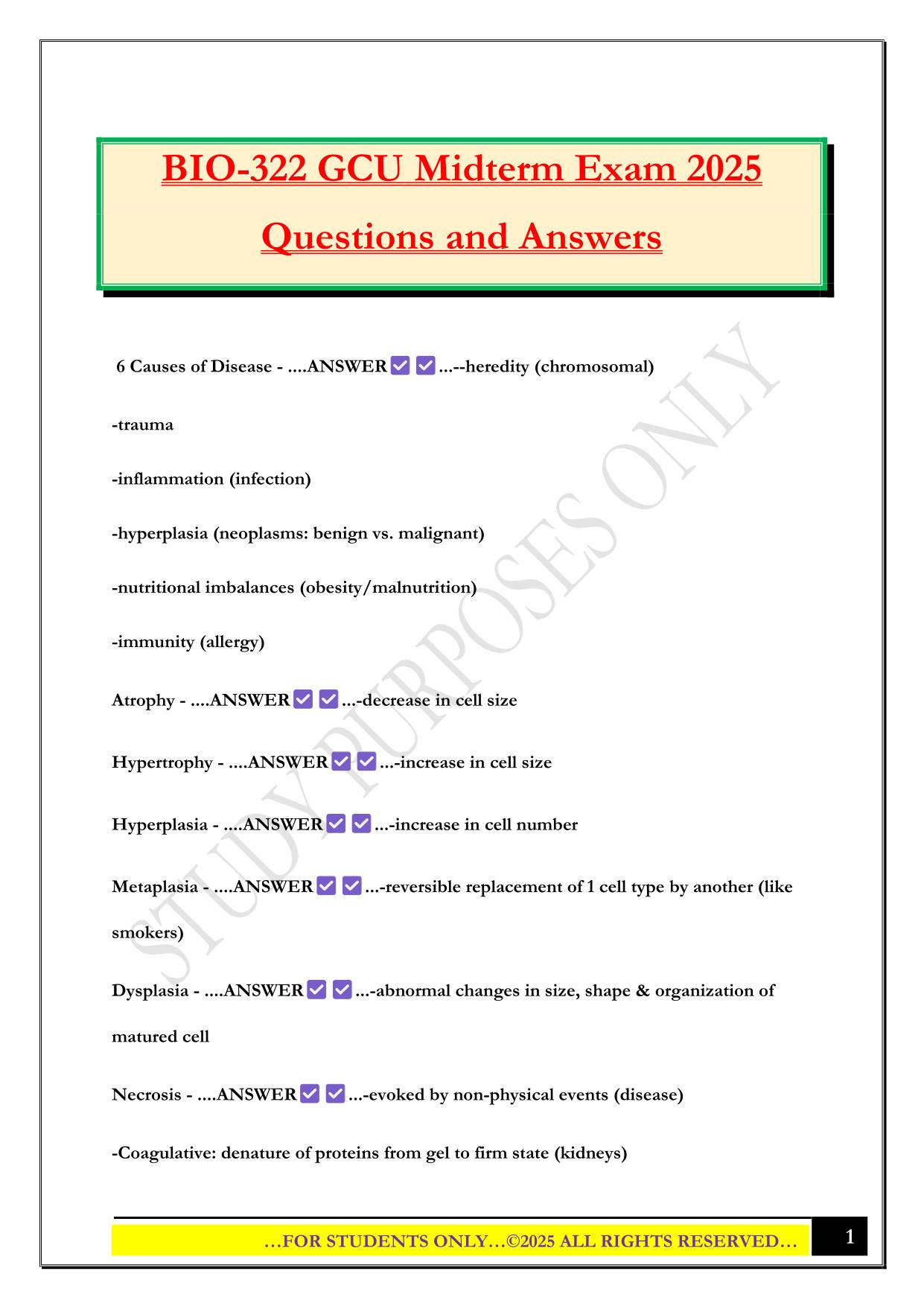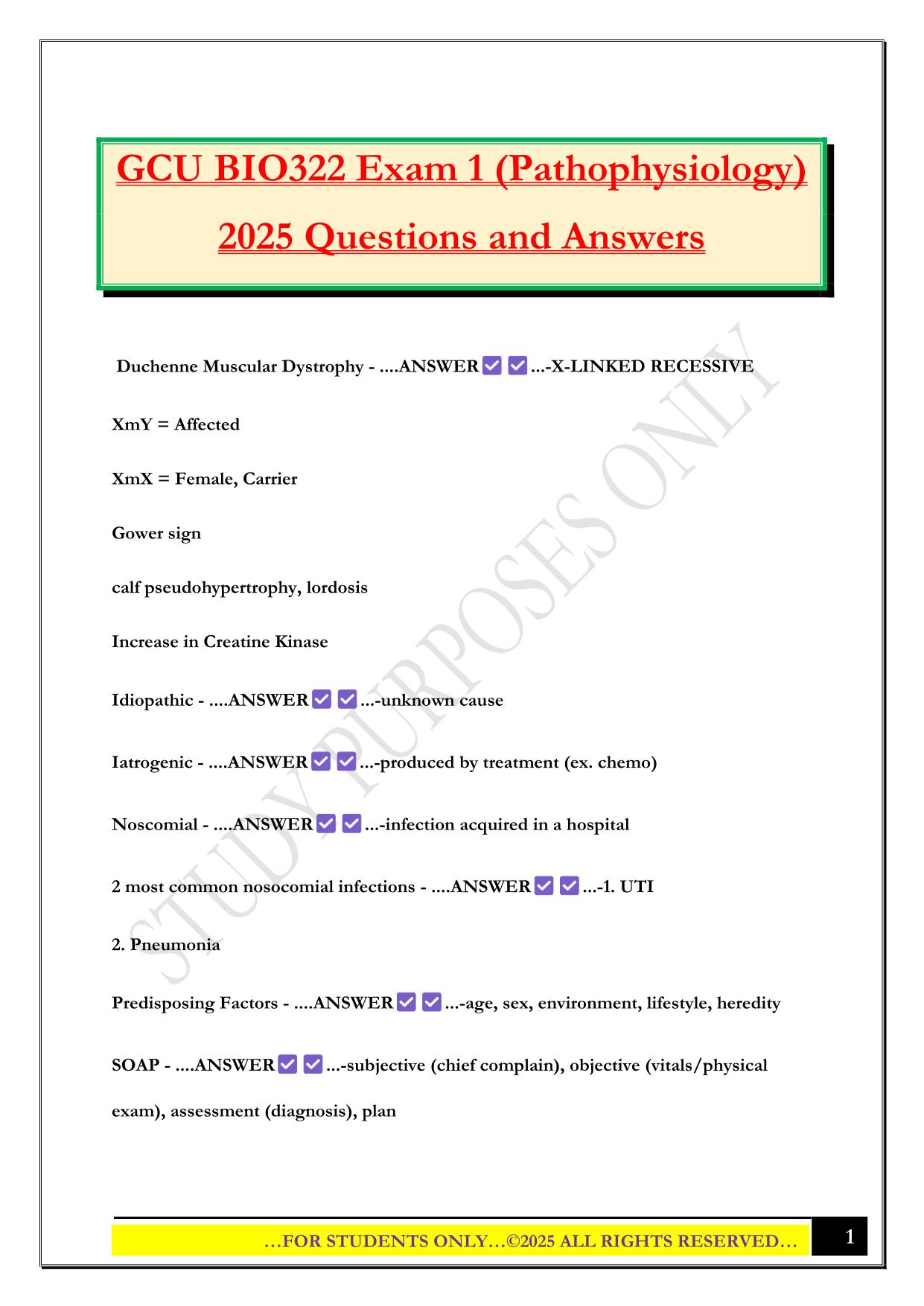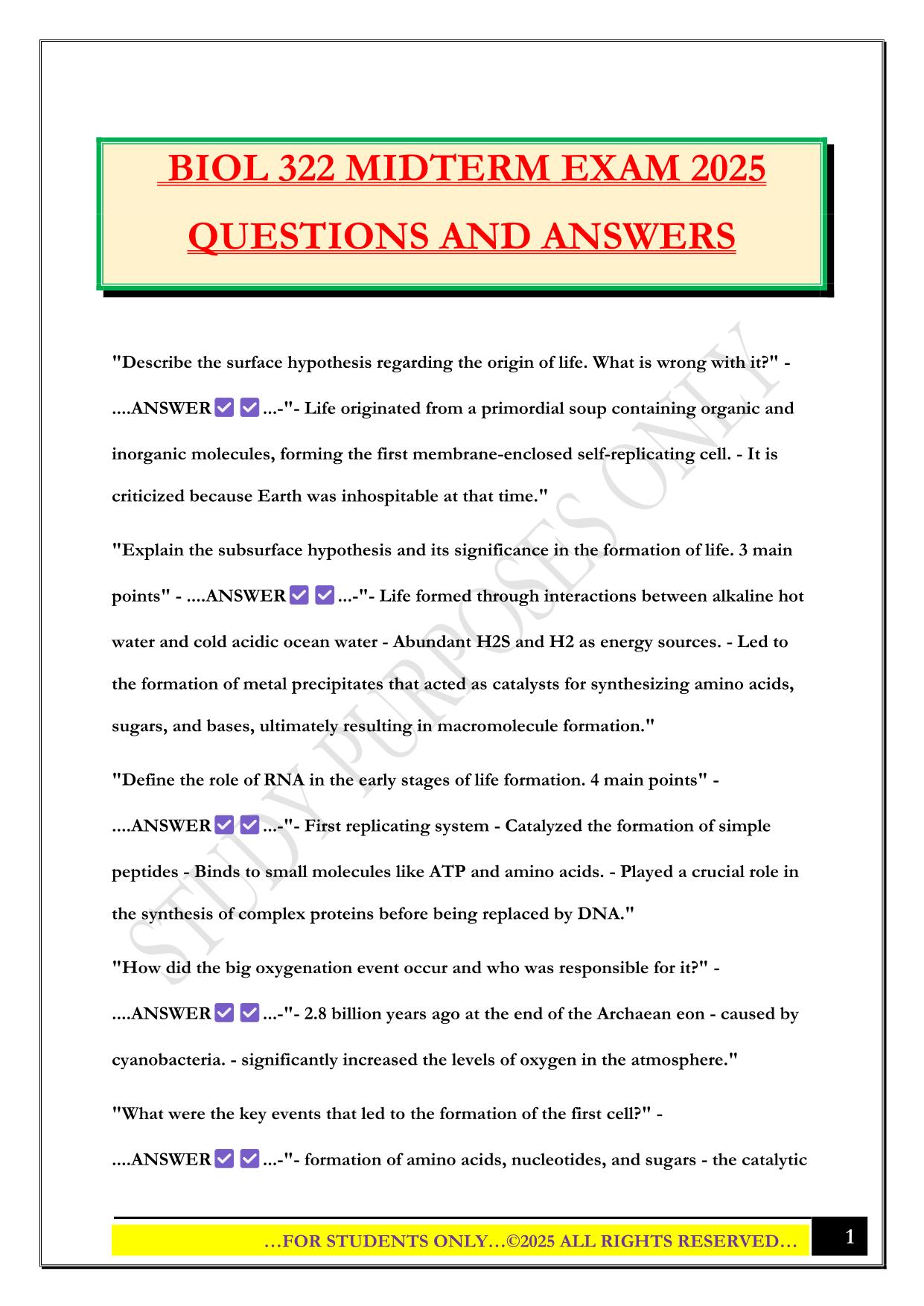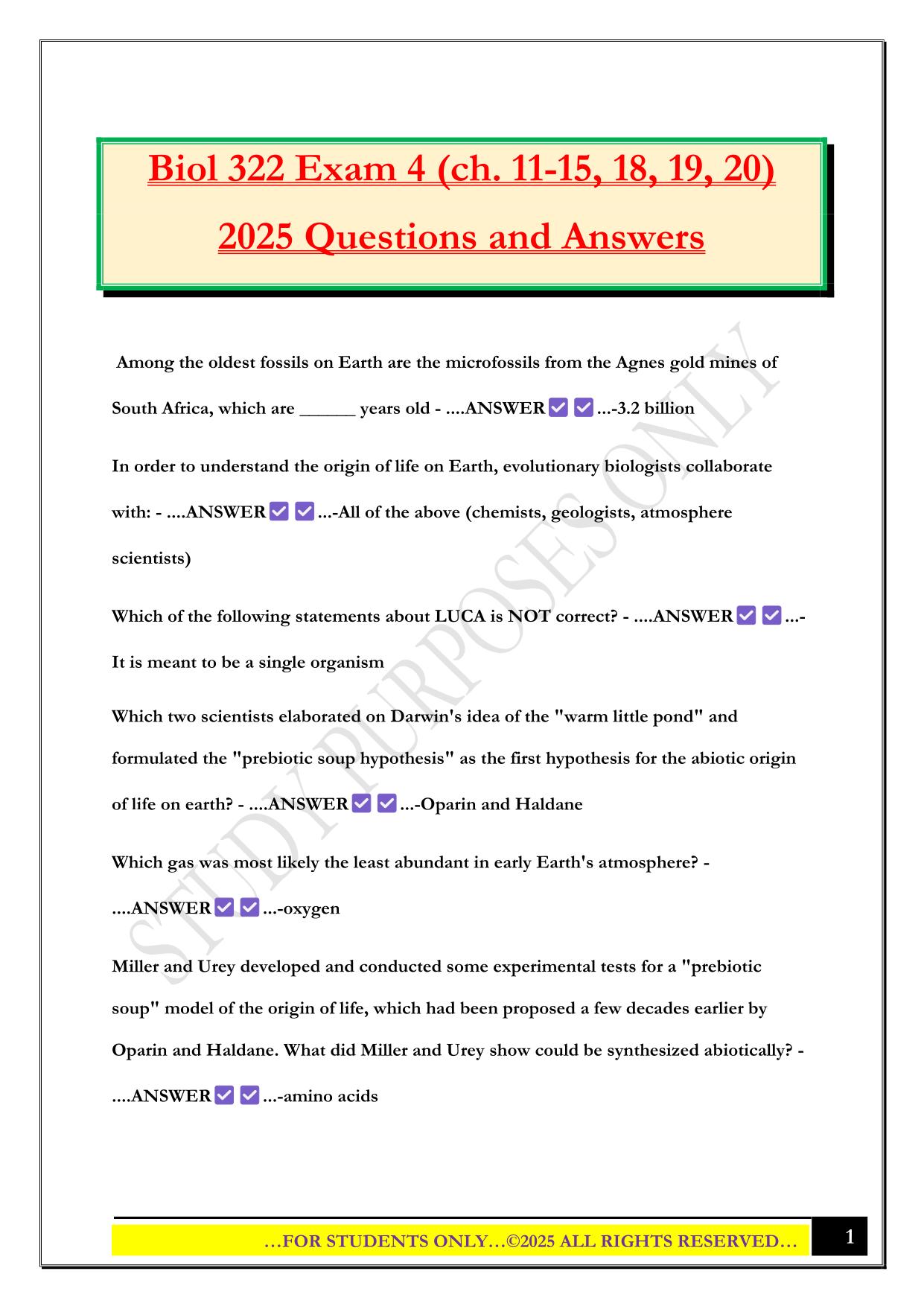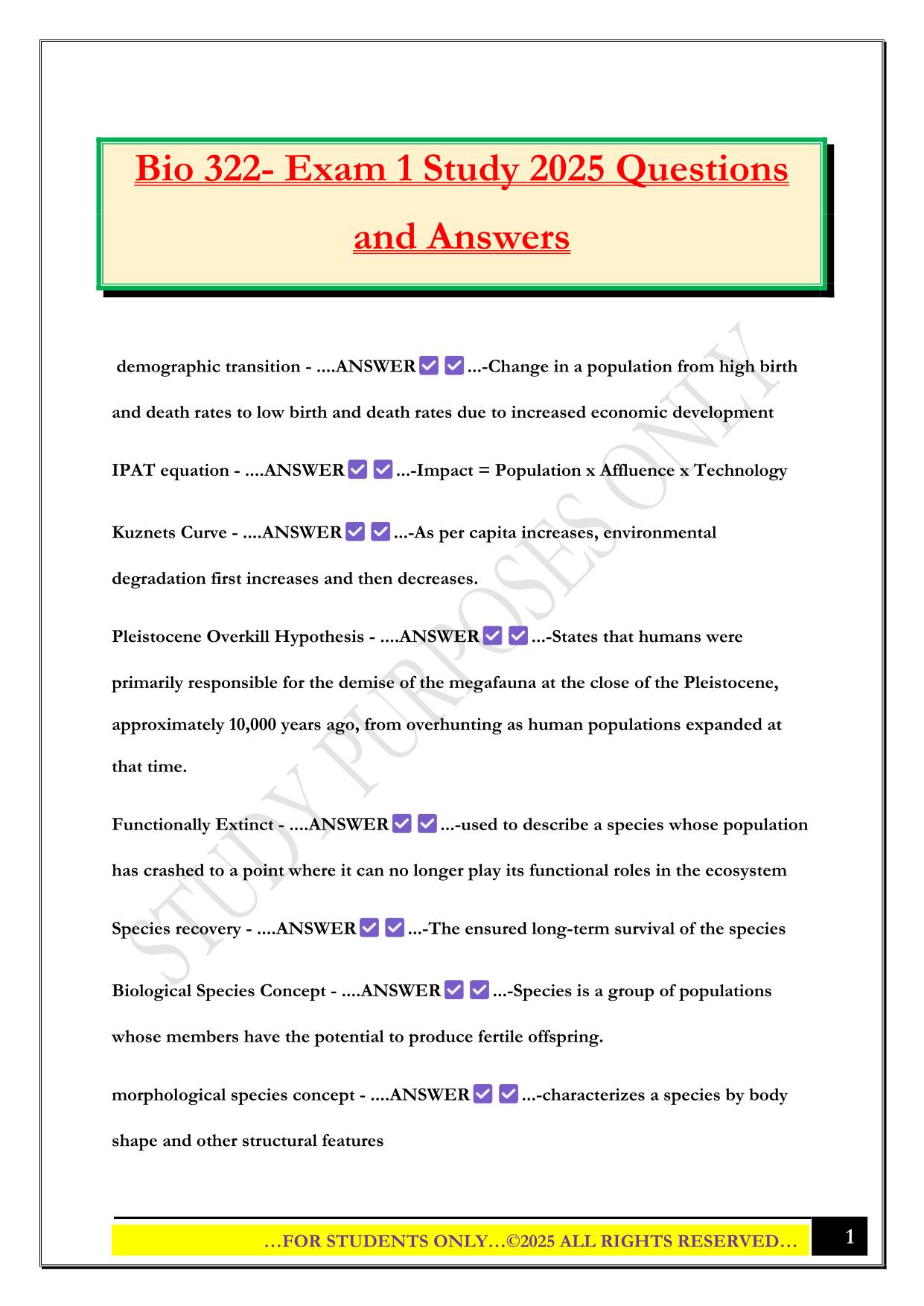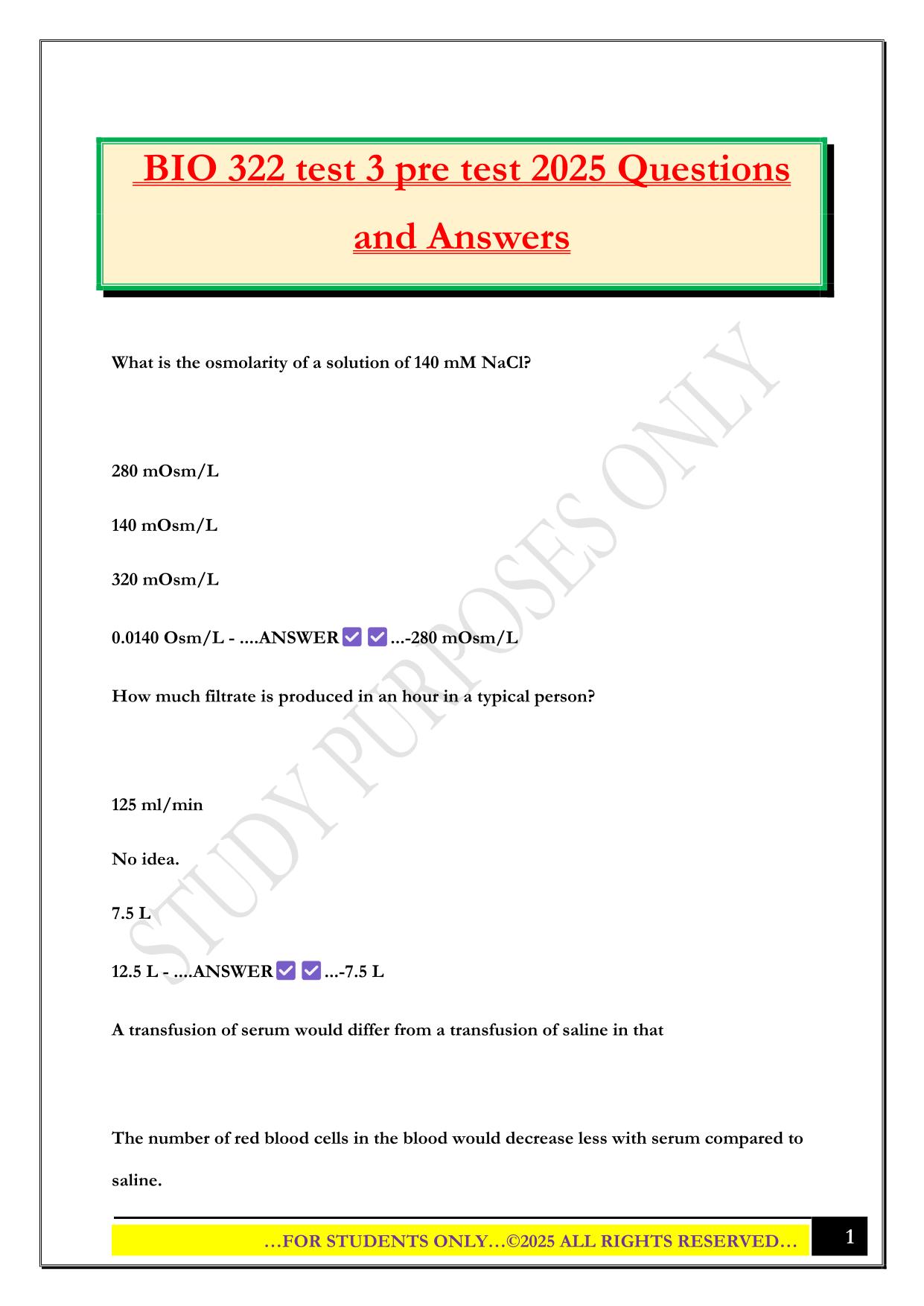Biol 322 Exam 3 (Ch. 16, 17, 20, and adaptations) 2025 Questions and Answers
Biol 322 Exam 3 (Ch. 16, 17, 20, and adaptations) 2025 Questions and Answers
Course:
BIOL 322
Institution:
BIOL 322
Biol 322 Exam 3 (Ch. 16, 17, 20, and adaptations) 2025 Questions and Answers
After purchase, you get:
✅ Instant PDF Download
✅ Verified answer explanations
✅ Refund if not Satisfied
✅ Prepared for 2025/2026 test cycle
Document Information
| Uploaded on: | September 4, 2025 |
| Last updated: | September 5, 2025 |
| Number of pages: | 13 |
| Written in: | 2025/2026 |
| Type: | Exam (elaborations) |
| Contains: | Questions & Answers |
| Tags: | Biol 322 Exam 3 (Ch. 16, 17, 20, and adaptations) 2025 Questions and Answers |
Seller Information

SophiaBennett
Reviews Received
User Reviews (0)
Exam (Elaborations)
$9.50
Bundle Deal! Get all 15 docs for just $24.99
Add to Cart
100% satisfaction guarantee
Refund Upon dissatisfaction
Immediately available after purchase
Available in Both online and PDF
$9.50
| 0 sold
Discover More Resources
Available in a Bundle
Content Preview
Biol 322 Exam 3 (Ch. 16, 17, 20, and adaptations) 2025 Questions and Answers In order to test the Red Queen hypothesis in snails, Lively collected samples of 40-100 snails from different lakes and streams across New Zealand, assayed parasitic infections in these snails, and determined the frequency of males in each sample. Examine his results summarized in the following figure and choose the best explanation for these results. - ....ANSWER ...-The proportion of males correlates with the frequency of sexual individuals, and it is an indication that sexual reproduction prevails in highly infected populations In one type of asexual reproduction, an unfertilized egg undergoes a division similar to mitosis, producing two daughter cells genetically identical to the mother. This type of asexual reproduction is known as: - ....ANSWER ...-apomixis N. Barton and B. Charlesworth (1998) defined sexual reproduction as the process that involves the joining together of genetic material from two parents to produce an offspring that has genes from each parent. More specifically, such process, which involves meiosis and gamete fusion, is called: - ....ANSWER ...-amphimixis Virtually all eukaryotes reproduce sexually either at some point in their life cycle or periodically across generations, while prokaryotes have other mechanisms to preserve genetic variability and exchange new mutations. This is sometimes referred to as a form …FOR STUDENTS ONLY…©️2025 ALL RIGHTS RESERVED… 1
 US
US

